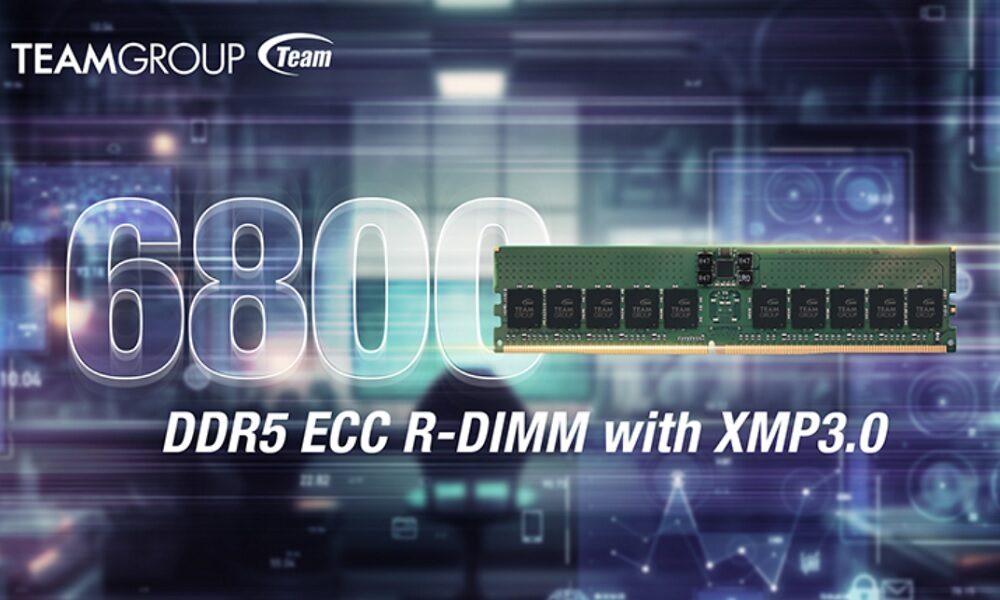
The Team Group firm has presented its new DDR5 RDIMM memory with ECC technology (error correction) to 6800MHz, a frequency that, as you may have imagined, has been possible to achieve thanks to the use of Intel XMP 3.0 profiles. This also represents a significant increase compared to its previous memories, which operated at 5,600 MHz.
To test and ensure the stability of this memory, Team Group has confirmed a collaboration with ASRock, the well-known manufacturer of motherboards, who has provided boards with W790 chipset that have allowed all the necessary tests to be carried out. This memory module is designed to work with the recently introduced new Intel Xeon W-2400 and W-3400 processors.
The Intel XMP 3.0 profile allows you to activate that 6,800 MHz speed in a very simple way, so much so that we only have to single click into BIOS to activate the corresponding option and that’s it. Raising the RAM frequency can cause stability problems, and also affects the overall performance of the computer, so it is so important that this memory module has been tested and guaranteed to work without any problem at those frequencies.
Team Group has confirmed that this RAM memory module will be available in 16 GB and 32 GB capacities, and which is also offered in a slightly slower version that works at 6400MHz. Unfortunately, I do not have details about its official sale price, at least for now.
This DDR5 ECC R-DIMM memory has been built with high quality components to guarantee a good user experience, high performance and total stability. In this sense, we can highlight 30 µ gold-plated connectorshas dual-ECC technology and is equipped with a high-precision temperature sensor to increase endurance and reduce thermal issues during overclocking.
All fourth-generation Intel Xeon processors, based on the Golden Cove (Sapphire Rapids) architecture, support DDR5 memory, but it is important to keep in mind that the final speed may vary depending on the configuration and the number of slots we have. busy. In this sense, when we have a configuration of two modules per channel the speed is reduced.



